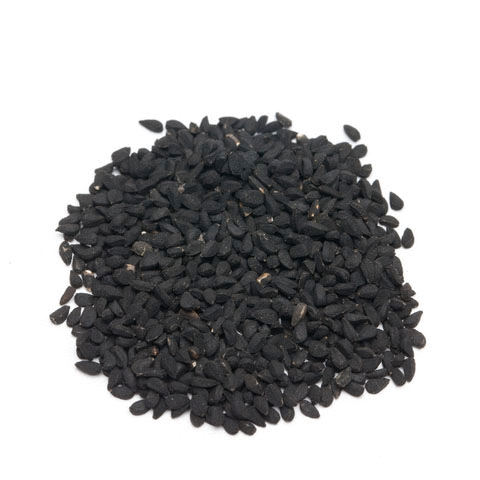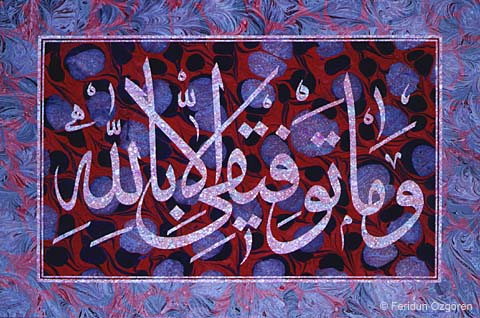
- Details
- Category: Unani Tibb
- Hits: 85
From "Tibb un Nabawiyy" of Shaykh Jaluddin as Suyuti al Misra
A complete exposition on the good that results from sickness, on visits to the sick and other matters.
"Verily sickness is the strongest incentive for a Believer to repent, to speak the truth, to do penance for his sins, and to raise himself Heaven- wards."
It is told about The Prophet Sall Allahu ‘alaihi wa Aalihi wa sallim that he said: He who dies on a sickbed, dies the death of a martyr and is secure against the inquisition of the tomb. His food descends upon him with the sustenance of Heaven. So says Ibn Maja.
Abu Hurairah and Abu Sa'id radhi Allahu ‘anhumma said: The Prophet Sall Allahu ‘alaihi wa Aalihi wa sallim said: A Believer will suffer no sickness nor fatigue nor indisposition nor even sorrow to cause him anxiety nor a thorn to pierce skin without that Allah will forgive him his sins by these means. This was extracted by al-Bukhari and Muslim.
It is related of The Prophet Sall Allahu ‘alaihi wa Aalihi wa sallim that he said: Verily a Believer should not fear sickness; for if he knew what he derives from sickness, he would desire to be sick even to death. This tradition is told by al-Zair. Said the Prophet Sall Allahu ‘alaihi wa Aalihi wa sallim: The greater number of my witnesses are the people of the bed. As for those who died in the battle at Safin Allah alone knows what was in their heart. This is related by Ibn Abi Shabayba.
A tradition says that Jabir said: Fever takes away sin from the Children of Adam just as bellows remove dross from iron. Abu Hurairah Radhi Allahu ‘anhu adds that The Prophet Sall Allahu ‘alaihi wa Aalihi wa sallim also said: To whom Allah intends a blessing, He will make him partake of it. This is related by al-Bukhari.
Said 'Ayesha: I have seen no one in greater pain than I have seen The Prophet Sall Allahu ‘alaihi wa Aalihi wa sallim. Al-Bukhari reports this saying. Said The Prophet Sall Allahu ‘alaihi wa Aalihi wa sallim: The people who meet with severe pain are The Prophet Sall Allahu ‘alaihi wa Aalihi wa sallim s of Allah, the devout and the very best of men. A man is afflicted in pro- portion to his love of the Faith. Affliction does not cease for the devout as long as they walk this Earth and until they are free from sin. This tradition is reported by al-Tirmidhi and it is a fair and sound tradition.
Said the Prophet Sall Allahu ‘alaihi wa Aalihi wa sallim: If Allah loves a people, He will give them affliction. Said the Prophet Sall Allahu ‘alaihi wa Aalihi wa sallim: There is no sickness or pain which a Believer receives that is not a penance for his sins whether it be a thorn which pricks him or a disaster that overwhelms him. Al-Bukhari reports this tradition.
Said the Prophet Sall Allahu ‘alaihi wa Aalihi wa sallim: No Muslim receives any injury without Allah shedding from him his sins, as a tree sheds its leaves. This tradition has been extracted and many more similar ones.
Said the Prophet Sall Allahu ‘alaihi wa Aalihi wa sallim: If there had been naught else for the children of Adam except safety and health, this would have been enough. This saying is reported by Abu Dawud.
Read more: Prophetic Guidance: The Good of Sickness and Related Matters
- Details
- Category: Unani Tibb
- Hits: 99

The Benefits of Black Seed Oil
Courtesy: Amazing Herbs
Many people around the world would like to improve their health. Why wouldn’t they? If you want to live a long life, having good health is the best way to preserve your longevity. Health also makes life worth living. Doctors say that prevention is the key to avoiding a range of illnesses, so many people have begun to look at preventative care and wellness as methods to ensure their long-term health.
What kind of preventative products and methods can you incorporate into your daily lifestyle? There are many things you can do, but beginning with easy and simple products is the best way to start.
If you’re an old pro on your wellness journey, you may have heard about black seed oil. Black seed oil can be used for a variety of health and wellness purposes, and it’s been taking the wellness industry by storm. How do you get your hands on black seed oil? What are some black seed oil uses? What is black seed oil used for?
If you’re curious about black seed oil, read through to learn all about this wonderful seed and its many benefits. You’ll be glad you did!
What is Black Seed Oil?
First, black seed oil is a derivative of the black cumin seed, otherwise known as Nigella sativa. This seed is indigenous to Asia, the Middle East, and Eastern Europe, and black seed oil uses have been well-known to people from this region for centuries. The black cumin seed is often used as both a spice and a remedy!
The oil is then extracted from this seed. Once you have the oil, it can be used as a supplement and even mixed with other beneficial herbs and ingredients. You can use black seed oil for specific issues and ailments, or take it daily as a preventative measure and overall health booster.
One interesting aspect about black seed oil and black seed oil uses is that it contains a compound called thymoquinone. This compound is sometimes classified as an antioxidant – it may also have anti-inflammatory properties. More studies are needed to accurately assess thymoquinone and what positive effects it has on the body, but this compound is likely the reason why black seed oil is so beneficial.

- Details
- Category: Unani Tibb
- Hits: 86
The choices of Prophet Muhammad Sall Allahu ‘alaihi wa Aalihi wa sallim regarding beverages were the most beneficial for preserving health. The beloved Prophet Muhammad Sall Allahu ‘alaihi wa Aalihi wa sallim used to drink honey with cold water, and this is an especially effective method to preserve the health that only the best doctors could have knowledge of. Drinking honey on an empty stomach will dissolve phlegm, purify the stomach’s protective layers and dissipate its viscidity and excrements while heating it mildly. Honey helps against the clogs in stomach, kidney, liver and prostate. Honey is much more profitable to the stomach than any other sweet.
We should state that honey might harm those suffering from bile, because it aggravates it. In this case, the harmful side effect of honey is neutralized when taking it with vinegar, as this method makes the honey very beneficial. In addition, honey is much more preferable than any other sugar based drink, especially for those who are not used to these types of sweet drinks. When one takes sweet drinks that he is not used to, he will not benefit as much as he will from honey, as this is the role that one's customs play. Customs remove foundations & establish foundations.
When the drink is both sweet & cold, it will be most beneficial for the body and one of the best methods to preserve its health and well-being of the soul, strength, liver & the heart. When a drink is both cold & sweet, the body will be eager for it (nutrition wise), will quickly digest and transfer it to other organs.
Allah said in Holy Quran:
وَجَعَلْنَا مِنَ الْمَاءِ كُلَّ شَىْءٍ حَىٍّ
"And We Have Made from water every living thing". (Surah Ambiaa: verse 30)
Cold water is wet, quenches the thirst, preserves the moistures in the body, and regenerates the moistures that the body has lost, softens the food and helps transfer it through the veins quickly.
In short, when water is cold and mixed with a sweet substance, such as honey, raisins or dates, it will be one of the most beneficial substances that enter the body and will indeed preserve health. This is why the best drink to Beloved Prophet Sall Allahu ‘alaihi wa Aalihi wa sallim is cold and sweet. Warm water begets flatulence and is not favorable for the body or the health.
Since water that is kept overnight is more favorable than recently drawn water, Prophet Muhammad Sall Allahu ‘alaihi wa Aalihi wa sallim said when he entered the garden of Abu At-Taihan:
قال النبىُّ صلى الله عليه وسلم وقد دخل إلى حائط أبى الهيثم بن التيهان: "هَلْ من ماءٍ بات فى شَنَّة" ؟ فأتاه به، فشرب منه، رواه البخارى ولفظُه: "إنْ كان عِنْدَكَ ماءٌ باتَ فى شَنَّة وإلاَّ كَرَعْنَا"
"Do you have any water that was kept in its skin overnight?"
He was brought some of that water and he drank from it. [Abu Dawood, Ibn Majah].

